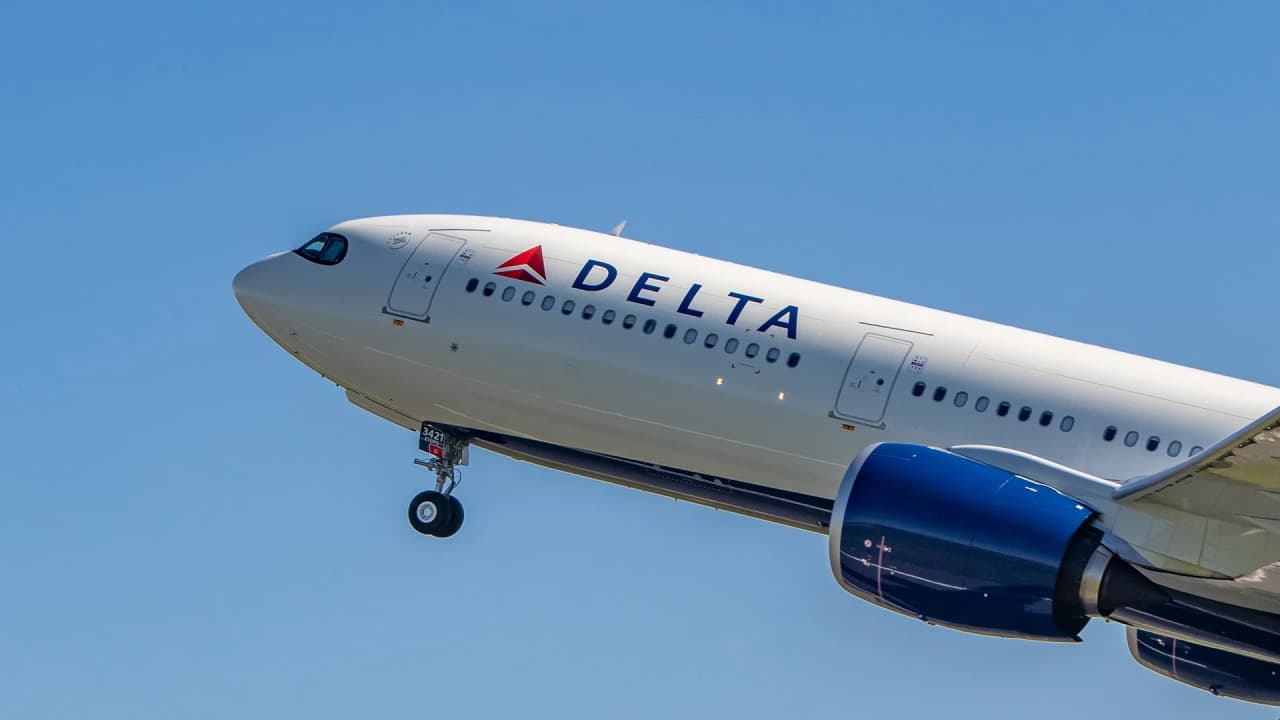- Published on
The Controversy Surrounding Delta Air Lines and the Palestinian Flag Pins
- Authors

- Name
- Admin

Introduction
Delta Air Lines, one of the major American carriers, has recently found itself at the center of a heated controversy. This situation arose when several of its employees were seen wearing pins featuring the Palestinian flag. The issue has sparked a significant backlash from various quarters, leading to a broader debate about political expression, corporate policies, and the sensitivities surrounding the Israeli-Palestinian conflict.
Background
The incident first came to public attention when a gate agent in Detroit was spotted wearing a Palestinian flag pin while working a flight to Atlanta. This was not an isolated incident, as other employees, including flight attendants, were also seen sporting the same pins. These actions have been perceived by some as a form of political statement, particularly given the ongoing and highly contentious nature of the Israeli-Palestinian conflict.
Reactions and Backlash
The reactions to the employees' actions have been mixed and highly polarized. Some passengers and observers see the pins as a form of silent protest and a demonstration of solidarity with the Palestinian cause. They argue that wearing the pins is a way for individuals to express their opposition to what they perceive as injustices and human rights violations against Palestinians.
However, others view the wearing of the Palestinian flag pins as provocative and inappropriate, particularly in a professional setting. They argue that such displays can be perceived as divisive and may alienate passengers, especially those who support Israel or have been directly affected by the conflict. Critics have called for Delta to enforce a stricter policy banning all political symbols from employee uniforms to maintain a neutral and inclusive environment for all passengers.

Corporate Policy and Free Speech
Delta Air Lines has a policy that generally prohibits political symbols on employee uniforms, with the exception of small pins equivalent to pieces of jewelry. The airline's lack of a decisive public response to the incidents has left many passengers feeling uneasy and questioning whether Delta is adequately addressing the issue. Some passengers have even suggested boycotting the airline until a clearer stance is taken.
The debate touches on broader issues of free speech and corporate responsibility. While employees have the right to personal expression, companies like Delta must balance this with the need to provide a comfortable and non-contentious environment for all customers. The controversy also highlights the challenges corporations face in navigating political and social issues in an increasingly polarized world.
Political and Social Context
The significance of the Palestinian flag varies among different groups. For some, it represents a call for the recognition of Palestinian statehood and an end to what they see as oppressive policies by Israel. For others, it is a symbol associated with anti-Israel sentiments and even anti-Semitism. The political climate in the United States, particularly in states with significant Muslim populations like Michigan, further complicates the matter, as these areas often have strong and divided opinions on the Israeli-Palestinian conflict.
Broader Implications
The Delta Air Lines controversy is reflective of a larger trend where companies are increasingly drawn into social and political debates. As businesses operate in a global and diverse environment, they are often caught between conflicting demands and expectations from their stakeholders. How Delta and other companies handle such situations can set precedents for corporate policies and practices regarding political expression and employee conduct.
Conclusion
The incidents involving Delta Air Lines employees wearing Palestinian flag pins have sparked a complex and multifaceted debate. It brings to the forefront issues of political expression, corporate neutrality, and the sensitive nature of the Israeli-Palestinian conflict. As Delta navigates this controversy, the airline's approach will be closely watched by both its customers and the broader industry, potentially influencing how similar situations are handled in the future.